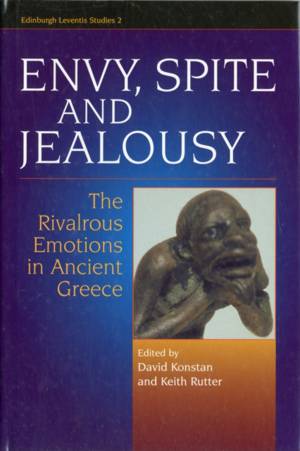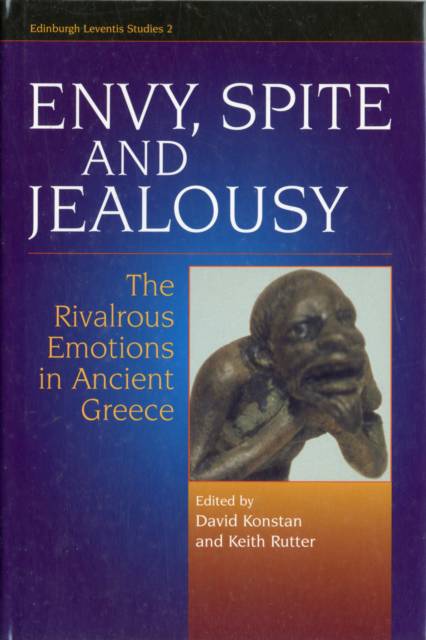
Je cadeautjes zeker op tijd in huis hebben voor de feestdagen? Kom langs in onze winkels en vind het perfecte geschenk!
- Afhalen na 1 uur in een winkel met voorraad
- Gratis thuislevering in België vanaf € 30
- Ruim aanbod met 7 miljoen producten
Je cadeautjes zeker op tijd in huis hebben voor de feestdagen? Kom langs in onze winkels en vind het perfecte geschenk!
- Afhalen na 1 uur in een winkel met voorraad
- Gratis thuislevering in België vanaf € 30
- Ruim aanbod met 7 miljoen producten
Zoeken
Envy, Spite and Jealousy
The Rivalrous Emotions in Ancient Greece
€ 306,45
+ 612 punten
Omschrijving
Classical Greece was permeated by a spirit of rivalry. Games and sports, theatrical performances, courtroom trials, recitation of poetry, canvassing for public office, war itself - all aspects of life were informed by a competitive ethos. This pioneering book considers how the Greeks viewed, explained, exploited and controlled the emotions that entered into such rivalrous activities, and looks at what the private and public effects were of such feelings as ambition, desire, pride, passion, envy and spite.Among the questions the authors address: How was envy distinguished from emulation? Was rivalry central to democratic politics? What was the relation between envy and erotic jealousy? Did the Greeks feel erotic jealousy at all? Did the views of philosophers correspond to those reflected in the historians, tragic poets and orators? Were there differences in attitude towards the rivalrous emotions within ancient Greece, or between Greece and Rome? Did jealousy, envy and malice have bad effects on ancient society, or could they be channelled to positive ends by stimulating effort and innovation? Can the ancient Greek and Roman views of envy, spite and jealousy contribute anything to our own understanding of these universally troubling emotions?This is the first book devoted to the emotions of rivalry in the classical world taken as a whole. With chapters written by a dozen scholars in ancient history, literature and philosophy, it contributes notably to the study of ancient Greece and to the history of the emotions more generally.
Specificaties
Betrokkenen
- Uitgeverij:
Inhoud
- Aantal bladzijden:
- 320
- Taal:
- Engels
- Reeks:
Eigenschappen
- Productcode (EAN):
- 9780748616039
- Verschijningsdatum:
- 24/07/2003
- Uitvoering:
- Hardcover
- Formaat:
- Genaaid
- Afmetingen:
- 156 mm x 247 mm
- Gewicht:
- 680 g

Alleen bij Standaard Boekhandel
+ 612 punten op je klantenkaart van Standaard Boekhandel
Beoordelingen
We publiceren alleen reviews die voldoen aan de voorwaarden voor reviews. Bekijk onze voorwaarden voor reviews.








